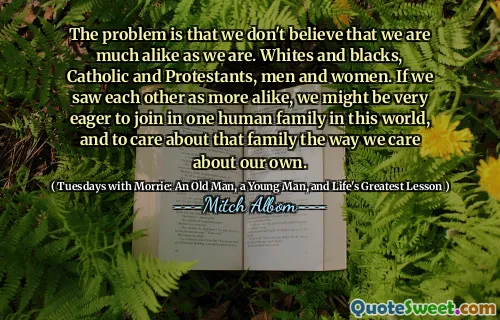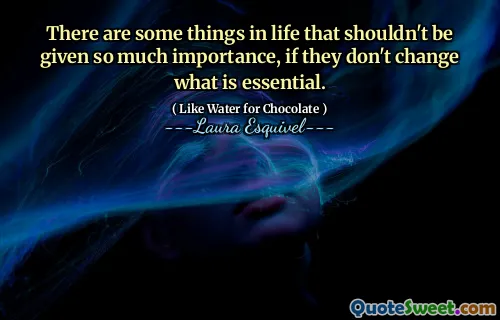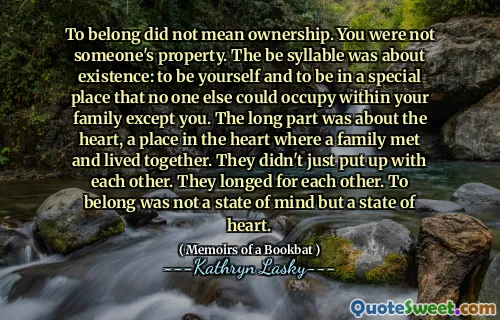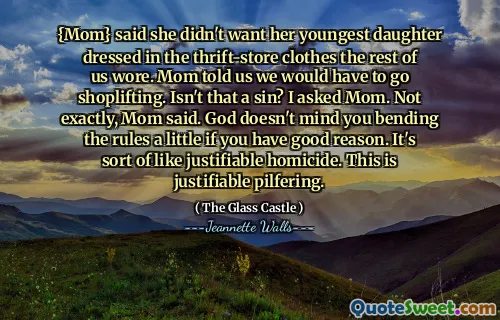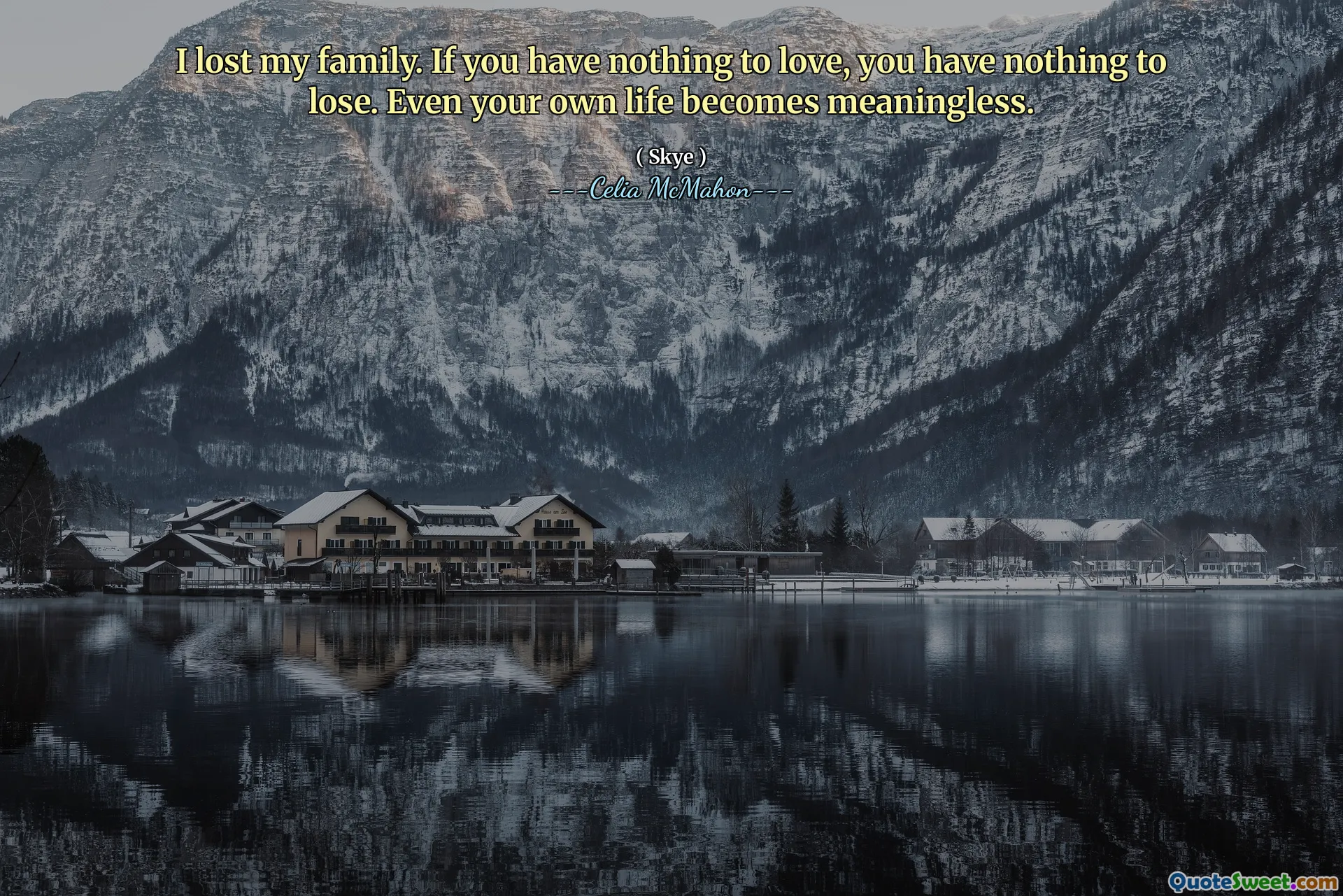
I lost my family. If you have nothing to love, you have nothing to lose. Even your own life becomes meaningless.
This quote reflects a profound exploration of the human experience, particularly concerning loss, love, and existential despair. When someone loses their family, they are often left feeling unanchored, as their core source of connection and purpose has been severed. The statement suggests that love is a fundamental component of human identity; without it, life can seem hollow and devoid of meaning. The phrase "If you have nothing to love, you have nothing to lose" underscores how love acts as a safeguard, giving life reasons to persist despite suffering. When love is absent, vulnerability increases, and decisions may become dictated by despair rather than hope. The subsequent claim that "Even your own life becomes meaningless" captures the depth of such despair, hinting at the profound loss of purpose that can consume someone in the absence of meaningful emotional bonds. This reflection prompts us to think about the intrinsic value of relationships and how they shape our existence. It also highlights the importance of compassion and connection in overcoming life's darkest moments. Recognizing the individual's pain in this context helps us understand that healing often requires rebuilding systems of love and purpose, which can restore meaning even after profound loss. Overall, the quote acts as a stark reminder of how vital love and relational bonds are to our sense of self and well-being, illustrating the fragile interplay between attachment and identity.

